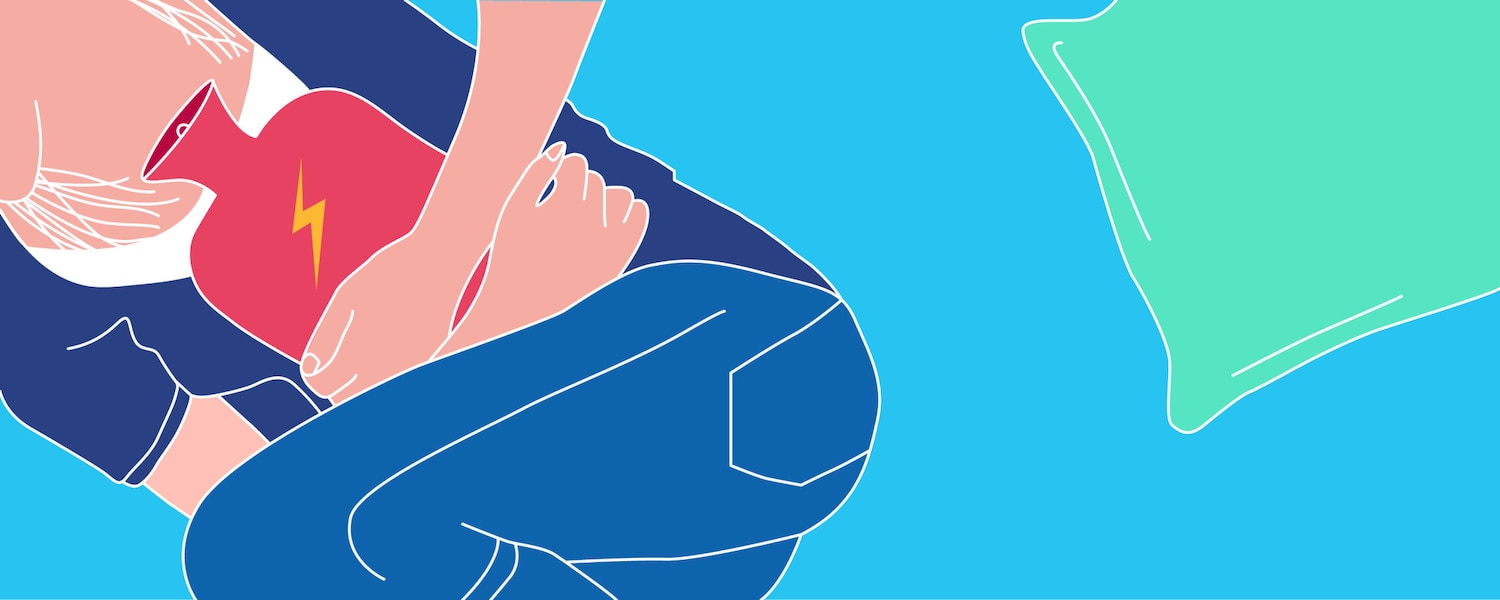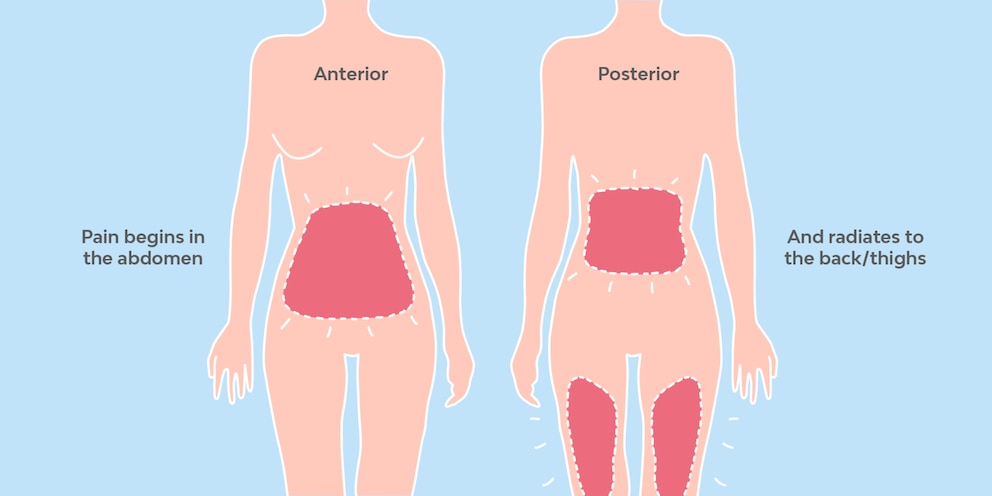What causes period pain and menstrual cramps?

We often ask the question – “why do periods hurt?” Here, we will talk about the causes and symptoms so you’re completely clued up on period pain.
Period pain is an annoying part of experiencing the menstrual cycle. While some people really suffer with cramps, others may not get any symptoms at all! For you, it may even vary cycle to cycle. The good news is that there are many things you can do to help period pain. Let’s understand and learn more about what causes period pain in the first place, and what symptoms to look out for.
So, what causes period cramps and painful periods?
Most women – studies suggest up to 80% [1] – experience pain or discomfort before and during their periods, so you’re not the only one cuddled up on your sofa or reaching for a hot water bottle during this time! A few things happen during your period that cause this. On one hand the uterus (womb) contracts to shed the uterine lining. On the other, chemicals called prostaglandins make your womb muscles contract even more during your period. Prostaglandins can also have the same contracting effect on your bowels and digestive system, that may lead to period constipation and period poop.
There are some other causes of menstrual cramps too. For example, sometimes stress can affect your periods by intensifying PMS symptoms including period pain. And while it’s less common, period pain can also be caused by an underlying medical condition, such as endometriosis, or be caused by types of contraception such as intrauterine devices (IUD).
But the good news is that when there isn’t such a condition, severe period pain tends to improve as you get older, and also after childbirth (if you choose to have children).[2]
What does period pain feel like?
Period pain might come in intense spasms that feel like you’re being jabbed with a pointy object from the inside, or you may experience a dull but constant throbbing around your lower tummy. This pain comes from the muscle cramps that occur when your womb muscles contract to shed your uterus lining as period blood. You may feel this pain around your abdomen, but it can also spread to other areas of your body too such as your lower back.
I'll have on-off minor cramps for a couple of days and then the pain will hit in a wave. It stretches from below my ribs down to my knees.[3]
What may be normal, varies from person to person. So, while what you experience is normal for you, it’s good to remember that everyone goes through period pain differently.
I'll have on-off minor cramps for a couple of days and then the pain will hit in a wave. It stretches from below my ribs down to my knees.[4]
How long does period pain last?
Waiting for your period pain to end can sometimes really test your patience! All you want to do is go about your normal life but the throbbing in your tummy seems to be the only thing you can think about.
There is no definite time frame for how long period pain lasts, but it does usually begin on the first day of you period and tend to ease up after a couple of days. However as there is no universal rule for the length of period pain, it’s also common for you to experience it a couple of days before your period comes and it could last for only an hour or for the entire duration of your period – unfortunately it’s just not something we can control!
You might notice that the pain is most intense when your bleeding is heaviest, so it may be useful to note this down, to help you monitor your cramps. Also, when you start experiencing pain as a teenager, this is often when it will be at its worst, but remember that as you grow it should begin to ease and feel less uncomfortable.
What are the symptoms of period pain?
Though you might associate getting period pain with the area around your abdomen, you can get period pain in a few other areas of your body. This includes your:
- Pelvis
- Back
- Thighs
- Stomach

The severity of these period cramps differs from one person to another. They can vary from a mild ache to a more severe pain. This could also translate into the following symptoms though:
- Vomiting
- Dizziness
- Headaches
- Loose stools
- Tiredness
- Bloating
What should I do if I have constant or really bad period pain?
If you’ve tried to ease the symptoms with painkillers or other self-help measures and period pain is still getting in the way of your life, then it might be time to see your doctor – especially if you have severe or constant period pain or the normal pattern of your periods suddenly changes.
Although cramps are a natural part of having your period, there are many ways in which you can ease the pain as much as possible. Read our full guide on ways to stop period pain, as well as our articles explaining if it’s possible to stop or postpone a period and how you can exercise during your menstrual cycle – which could help with your period cramps too!
Medical disclaimer
The medical information in this article is provided as an information resource only, and is not to be used or relied on for any diagnostic or treatment purposes. Please consult your doctor for guidance about a specific medical condition.
[References]
[1] http://online.liebertpub.com/doi/pdf/10.1089/jwh.2015.5529

